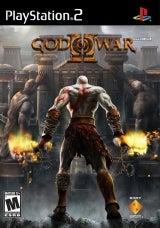After bring introduced by GDC Director Jamil Moledina, Harrison kicked off his speech (dubbed "Beyond the Box") by loading up some slides that detailed Sony's self-described report card for this generation. We saw all of the numbers, including the 100 million hardware units in this generation to the one billion (with a B) games sold across 6732 titles. He also mentioned that this generation was better than the last in a number of ways. The PS2 took over the market much faster than expected and at a higher price point. He told the developers in attendance not to forget about the world's number one platform, and he brought out God of War creator David Jaffe to show off the sequel to one of the generation's best games. (Editor's Note: Check out this article detailing all of the demos and trailers we saw during the keynote.)

From there, Harrison began talking about the PlayStation Portable, which is Sony's fastest growing platform. He mentioned that the dev tools would be getting less expensive, which should help new developers enter the market. We also found out about an upcoming network update that will include greater RSS and Flash support for the system's web browser. The big surprises for the PSP are an EyeToy-like camera (which takes both video and still photos) and a GPS receiver. Harrison said that he hoped developers would take advantage of the accessories, as they both offer unique gameplay opportunities.
The keynote continued as Harrison detailed Sony's plans for the PSP and PS3 platforms, which will offer what sounds like a great deal of interoperability. You'll be able to use your PSP to browse content stored on your PS3's hard drive, presumably from anywhere in the world. We were surprised to hear that there will be network updates that will allow the PSP to run programs off of a memory stick, but the feeling quickly turned to delight when we heard that there will be an official PSOne emulator available. The only real question is whether there will be safeguards to keep users from running homebrew programs. Of course, it might be worth the risk if Sony starts creating other applications for the platform, turning the PSP into a supergadget.





